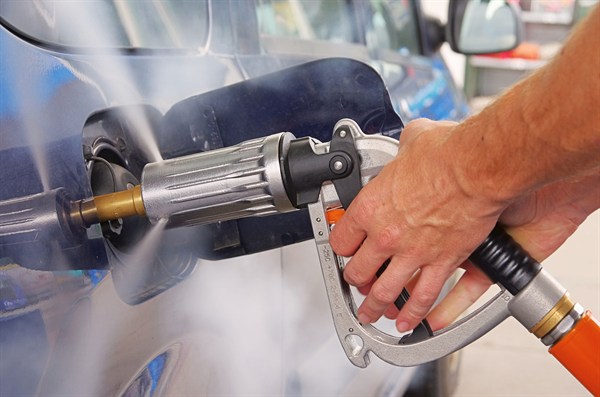Scientists at London’s Imperial College have tricked E. coli bacteria into making renewable propane that could replace the petrol in your fuel tank. Their work has caught the imagination of the nation, receiving wide press coverage, and it’s not hard to see why.
E. coli bacteria are commonly found in the human gut, with some strains associated with food poisoning. It may sound unpleasant, but if it were possible to conjure carbon-neutral gas using clever biochemistry, what’s not to like?
Well, allow us to explain…
What the scientists did
The scientists at Imperial have genetically modified E. coli so that they produce propane. This isn’t actually as far fetched as it sounds. The bugs make fatty acids naturally to build their cell walls. Chemically speaking, fatty acids are a short hop, skip and jump away from the fat found in butter or margarine – or alternatively, hydrocarbons like propane.
Dr Patrik Jones and his colleagues added some genes so the bugs would turn a short fatty acid called butyric acid, into propane. Butyric acid is what makes vomit smell like vomit, so the researchers probably weren’t popular with their scientific neighbours.
Bacteria are already used to ferment sugars from wheat, corn or sugar cane into ethanol that can be blended with petrol. But there are several reasons why ethanol isn’t actually a very good biofuel.
It mixes with water (see: vodka, a mix of 40 per cent ethanol in water) making it hard to separate from the bacterial gloop. It is toxic to the bugs that make it (see: vodka). And there is a limit to how much ethanol can be blended into fuel for standard petrol engines.
Jones and his colleagues decided propane would be a better choice because it is a gas, making extraction easier as it will evaporate from the bacterial sludge on its own. It can also easily be turned into a liquid for ease of transport, and there is existing infrastructure associated with its use as a fuel. Many vehicles and pumping stations already use liquid petroleum gas (LPG), which is mainly propane.
In a press release Jones says:
“[Our work] opens up possibilities for future sustainable production of renewable fuels that at first could complement, and thereafter replace fossil fuels like diesel, petrol, natural gas and jet fuel.”

Credit: LPG pump | Shutterstock
Where’s the catch?
The concept sounds pretty cool, even if as Jones and his team emphasise it is at the early stages of development. Unfortunately it suffers from the same achilles heel as all biofuels – a very low energy density.
What does that mean? At the moment the propane-producing bugs are fed glucose, a simple sugar. The energy in the sugar has to come from somewhere – probably sugar cane. The sugar cane takes land to grow, energy to harvest and process and so on.
The researchers say the bacterial machinery that makes the propane could be put inside cyanobacteria, also known as blue-green algae. The algae wouldn’t need glucose to grow, just sunlight and some basic nutrients like carbon dioxide, nitrogen and phosphorus. That would mean you could turn sunlight into propane.
But whether you use glucose from sugar cane or photosynthetic algae, the energy ultimately comes from the sun, and that is where the fundamental limitations of the idea begin to bite.
Former chief scientific adviser to the department of energy and climate change David MacKay lays out why in an example from his book “Sustainable Energy – without the hot air”.
An average car driver needs 40 kilowatt hours of energy per day to drive 50 kilometres, he explains . Even assuming that we turn over all of the UK’s farmland to growing biofuels, we could supply a maximum of 24 kilowatt hours of energy per person per day by growing stuff – whether it be wheat, corn, oil seed rape or whatever.
Basically, fossil fuels offer pretty amazingly concentrated energy. Just 2.4 litres of petrol would replace the 24 kilowatt hours of energy that a single person’s share of the UK’s farmland could produce, on a good day, if we’re lucky. That petrol would cost about £3 – of which almost half is fuel tax.
That’s why any serious low-carbon transition for road transport probably needs to look beyond biofuels – no matter how cleverly they are produced.
Food poisoning-derived propane or even ethanol derived from corn waste may turn out to have their uses, but they are unlikely to be a silver bullet.
P. Kallio et al. (2014) An engineered pathway for the biosynthesis of renewable â??propane, Nature Communications, doi.org/10.1038/ncomms5731

